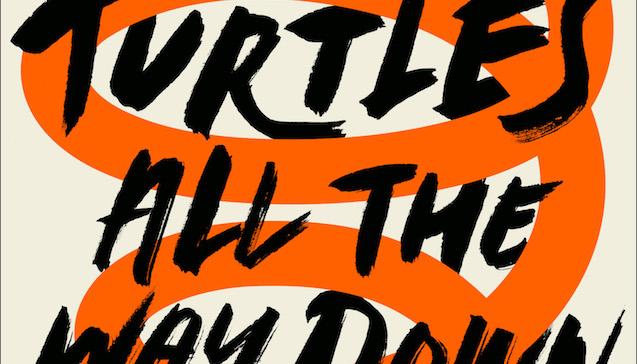Editor’s Note: The grading system used here is similar to the 10-point scale used in SDSU courses.
GRADE: A
In John Green’s latest novel, “Turtles All the Way Down,” Green boldly writes about mental illness in the main character Aza.
Aza is trying to be a normal girl — one who’s supposed to be a good daughter, friend and student. While she’s trying to be a good girl, her best friend Daisy throws her into an investigation after sleazy businessman Russell Pickett disappears.
As the girls’ investigation continues, Aza grows closer with Pickett’s son Davis. Eventually, Aza’s motivation moves away from getting reward money and toward helping Davis and his brother Noah find answers.
From what I heard prior to reading the book, and what I read, the main character Aza has Obsessive-Compulsive Disorder (OCD). This doesn’t seem to be a common topic when it comes to young-adult novels, or at least I have never come across it before. By doing this, however, Green brings awareness to mental illness and educates his readers about how people live with it.
One of the main things I loved about the novel was how Aza’s mother and friends deal with her OCD by sticking with her and offering support.
The novel also shows how the anxiety caused by Aza’s OCD changes her mood. It usually seems to change to fear and it sometimes kills the mood between her and her friends. Still, they stick by her and, at least to her friend Daisy, Aza gives a sense of inspiration.
In the book, I saw how Aza’s mental problems brought her mother pain because she thought she wasn’t helping her daughter enough. She was still trying to be strong for her daughter and she did her very best to help her. It showed Aza is and will forever be loved no matter what.
As for how OCD affects Aza herself, one minute she’s fine until she thinks about the self-inflicted cut on her finger. She worries not constantly cleaning it would cause her to contract some horrible illness that would kill her. The more I read the book, the more I was able to understand her and why she was like that.
Even though she can be seen as a flawed character, I couldn’t see her as that. I saw her as someone who struggled with thoughts weighing her down. Aza helped show me there’s a lot more than physical struggles that can prevent someone from doing something or being the person they want to be. It taught me mental struggles can be just as bad, if not worse, than physical struggles.
Although it appears the book might not be for everyone due to the nature of the novel and possible triggers for people with OCD or other mental health problems, I still recommend it to any fan of John Green or anyone who needs a novel that’s different from the norm.

















